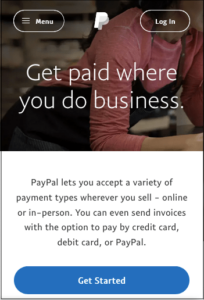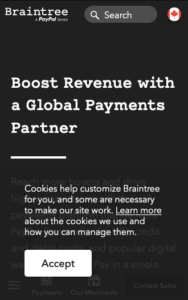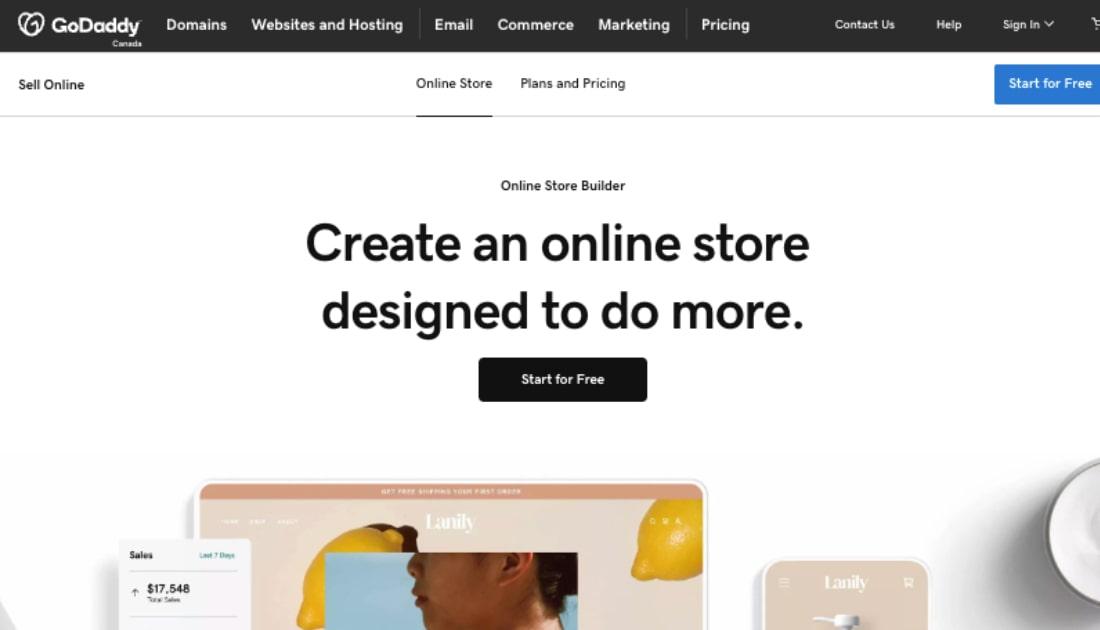UPDATE: This online payment processing post was originally published on 12 May 2020 and updated on 9 April 2021.
If you aren't already capitalizing on web-based sales and offering online payment processing, today might be the perfect time to start.
The pandemic has permanently changed Canadians' buying behaviour.
Whether you plan to sell online exclusively or accept virtual payments for touch-free pickup or delivery from your brick-and-mortar business, you need to do what you can to keep operations up and running.
The good news is that there are plenty of online payment processing tools to choose from.
Related: One year later — how Canada's small businesses have changed
6 cheap payment processing options
Everyone knows it costs less to sell products and services online than to sell them from a physical storefront. There’s no rent, fewer staffing costs, etc. But there are costs to accepting digital payments.
Online payment processing platforms typically charge per-transaction fees, while some may charge a monthly fee on top of that.
Some tools charge fees for setup, while others may have termination fees.

There may also be fees based on the type of payment being accepted:
- Credit cards
- Debit cards
- Rewards cards
The fee may also depend on the amount charged.
All these tools come at a price, which varies from one platform to another.
Your task is to find the one that is both compatible with your online business and easy on your bottom line.
We've rounded up some of the cheapest online payment processing tools available to help you keep selling — even if only online. Each one was handpicked both for its relative affordability and value.
1. PayPal
Traditional means of accepting online payments combine a merchant account and a payment portal.
- Your merchant account is what allows you to accept credit card payments
- The payment gateway connects your merchant account with your store
However, these can be cumbersome and require fiddling with things like APIs, which enable the different pieces of software to work together. That can complicate the process.
PayPal combines a merchant account and gateway into an all-in-one solution.
PayPal takes all major credit cards as well as Apple Pay, and is one of the most popular online transaction payment engines out there.
It also provides business owners with the technology needed to customize the checkout experience, so you have a lot of control over how people go through the payment process.
Since there's no need to store customer data, it's great for small businesses that are looking for something low-risk.

PayPal also offers reasonable transaction rates, so you can accept virtual payments without sacrificing a huge chunk of your sales.
Pros
No merchant account needed
Easy setup
Same-day funding available
Can be used with many shopping cart systems
Cons
Chargeback fees can be high
Account suspensions can freeze funds
2. Stripe
Online payment processing platforms like Stripe take the guesswork out of the game and come with the added bonus of keeping the payment process on your website.
While many online payment processing tools take customers away from your site to make their purchase, Stripe doesn’t.
It integrates with your store's checkout so that consumers are not going elsewhere. This is a user experience win.
Pros
Flat-rate fees
Zero setup and account maintenance fees
Quick and easy sign-up and setup
Easily customized
Cons
Some complaints of frozen or canceled accounts
PayPal payments are not accepted
3. 2Checkout
This payment platform allows businesses to accept a variety of payment forms, including credit cards, debit cards and online wallets, among others.
2Checkout can be quickly and easily integrated with hundreds of online shopping carts.

Fees are competitive for merchants, and those with higher sales volumes may qualify for more affordable volume-based pricing.
Pros
No setup or monthly fees
Easily integrated onto your shopping site
Recurring billing allowed
Cons
Customers are sent off-site to complete checkout, which can cause some lost sales
4. Square
Square is a popular payment processing platform for businesses that operate both online and in traditional brick-and-mortar stores.
Square’s credit card processing can be easily added with online checkouts and eCommerce platforms such as Shopify, BigCommerce, WooCommerce and GoDaddy’s Online Store.
There is no cost to set Square up on your website, nor are there any monthly fees to pay.
Square’s transaction fees are comparable with some of the more affordable options currently available.
Pros
Customized checkouts
Flat-rate credit card processing fees
Easy setup
No merchant account required
Cons
May be more expensive for average sales of over $20
5. Braintree
Another good option for businesses that want to accept online payments is Braintree. This service features a flat transaction fee with no monthly fees or setup costs. Braintree was actually bought by PayPal, but it has its differences from the former.

Braintree allows full customization of your site's shopping cart and can be integrated with your current website. In addition to taking PayPal payments, Braintree also allows your business to accept all major credit cards, debit cards and digital wallets.
Pros
Provides customers with individual merchant accounts
Grows with your business
Cons
Customization is more complicated compared to other online payment processing tools
6. Moneris
Moneris is quite common among traditional brick-and-mortar stores for point-of-sale (POS) transactions. It’s also used for eCommerce checkouts, in which a Moneris Gateway API is used to facilitate payments. This can be directly integrated on your site or used as a hosted payment page.
Transaction fees are low compared to other online payment processors, but Moneris does charge a monthly fee. The actual prices charged will vary and are based on card, transaction and business type.
Pros
Lower transaction fees for larger sales volumes
Customer data storage
Simple shopping cart integration
Cons
May not be suitable for small businesses with low sales volumes
Related: Step-by-step guide to selling on social media
Final thoughts
Retail sales online in Canada jumped more than 12% in 2020, and online retail revenue is expected to hit the $33 billion mark by 2024.
So, even if you're adding the option of online payments in order to offer touch-free service during the pandemic, accepting digital payments is something you'll probably want to adopt for the long haul. And with one of these online payment processing tools, you can help bolster sales without paying more than you have to.







